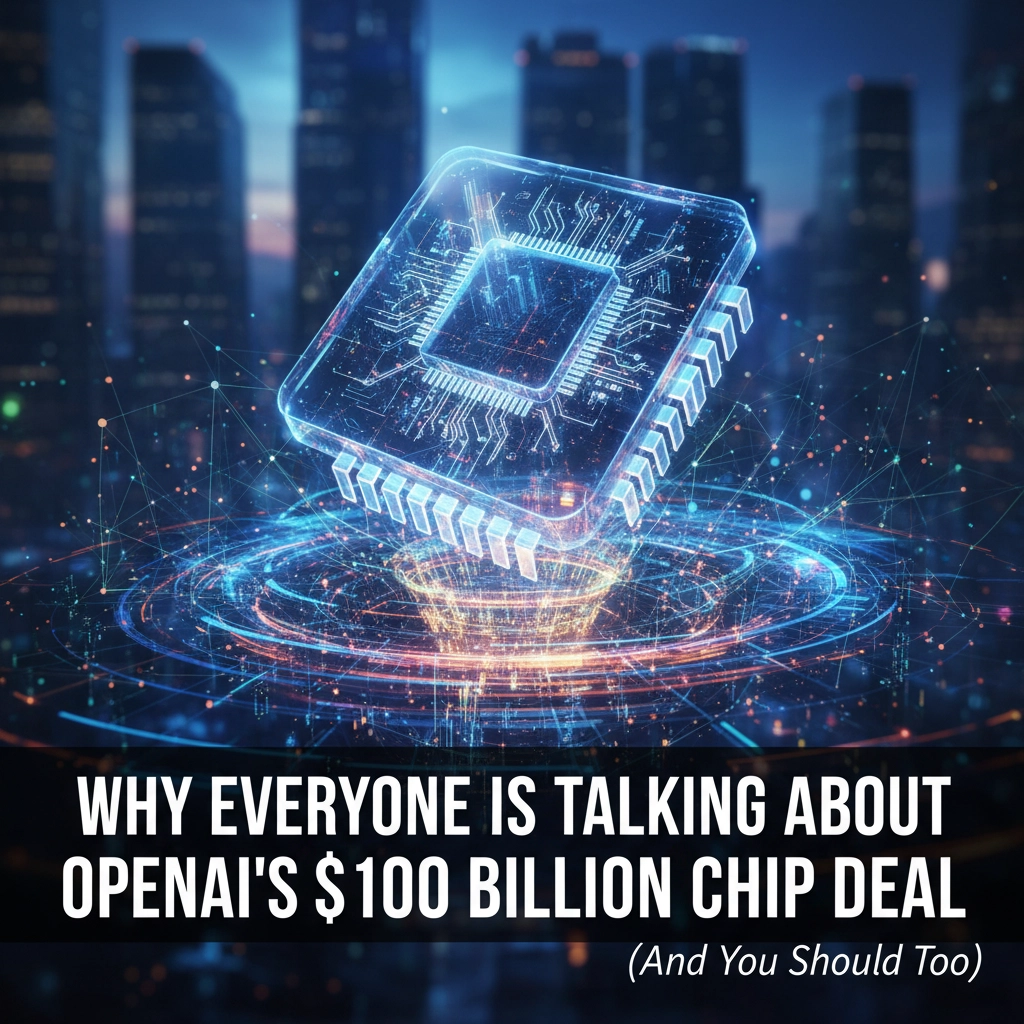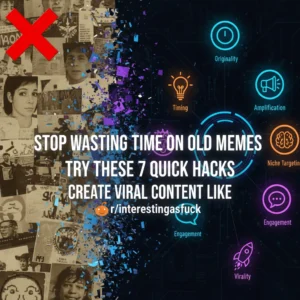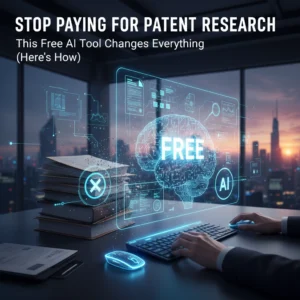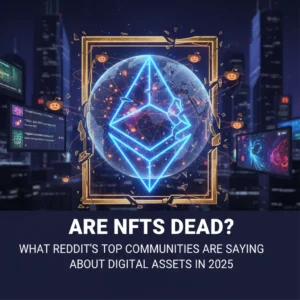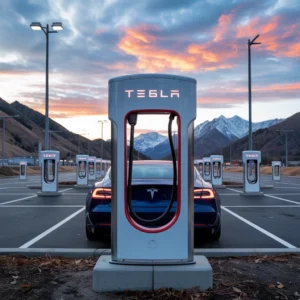Did you know that OpenAI and Nvidia just shook hands on a deal worth more than the GDP of most countries? We're talking about $100 billion here – enough money to buy every NFL team twice over. But here's the kicker: this isn't just another tech acquisition. It's a move that'll reshape how we interact with AI for the next decade.
On September 23rd, 2025, these two tech giants announced a partnership that has everyone from Wall Street to your local coffee shop buzzing. And honestly? You should be paying attention too, because this deal is about to change everything from your job search to how you chat with AI assistants.
What's Actually Happening Here?
Let's break this down without the corporate speak. Nvidia isn't just writing OpenAI a massive check – they're creating what I like to call a "tech friendship with benefits."
Here's how it works: Nvidia invests up to $100 billion in OpenAI for non-voting shares. Then OpenAI turns around and uses that exact money to buy Nvidia's chips. It's like your friend lending you money to buy their car – everyone wins.
But the scale here is mind-blowing. We're talking about building 10 gigawatts of AI data centers. That's enough power to run more than 8 million American homes. The first wave starts in late 2026 with something called Nvidia's Vera Rubin platform, which will pack approximately 4-5 million GPUs – that's twice what Nvidia shipped the entire previous year.
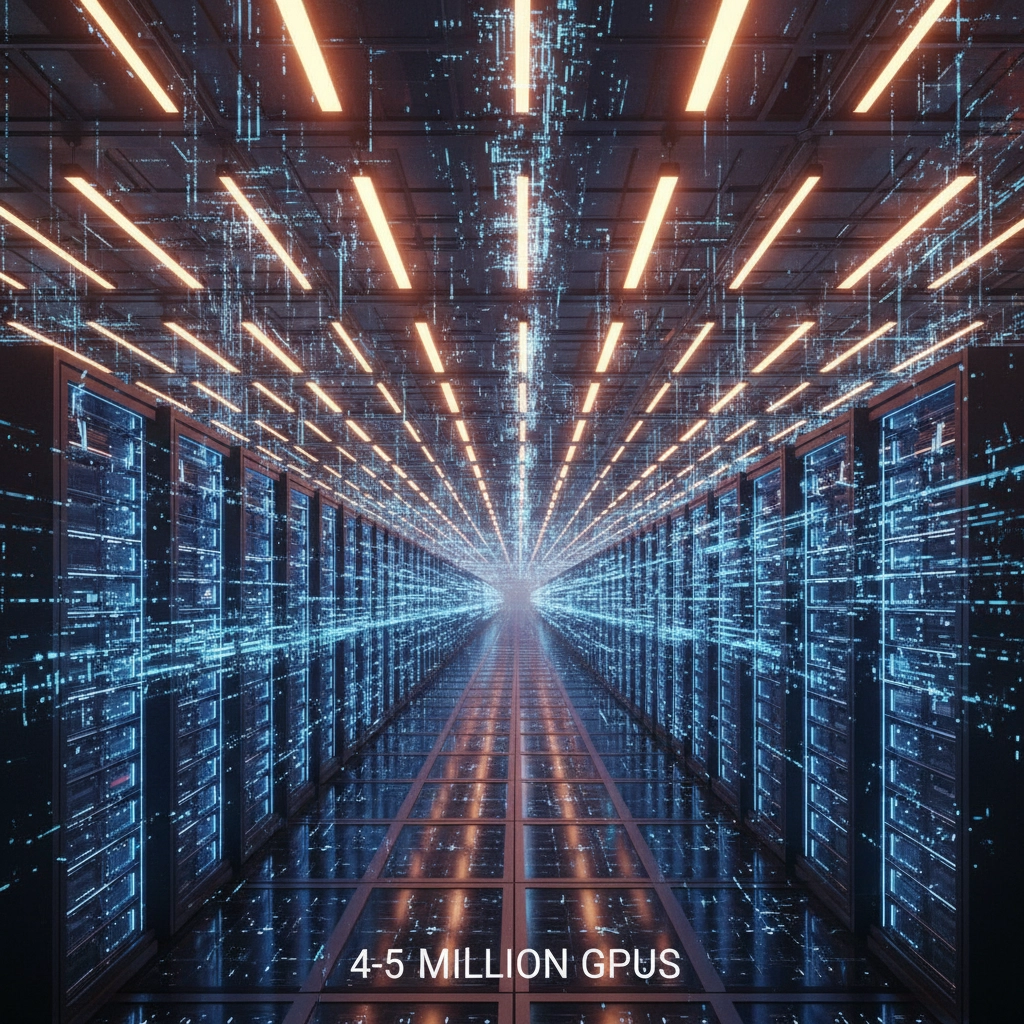
Think about it this way: remember when ChatGPT would crash during busy periods? Those days are about to be ancient history.
Why Your Life's About to Get More Interesting
You might be thinking, "Cool story, but what's this got to do with me?" Fair question. Let me paint you a picture.
Last month, my friend Sarah was struggling to write cover letters for job applications. She'd spend hours crafting each one, only to get radio silence from employers. Fast forward to today – she's using AI to generate personalized cover letters in minutes, and her response rate has tripled. Now imagine that same AI, but with the computing power of a small city behind it.
This deal means AI assistants are about to get scary good at understanding context, remembering conversations, and handling complex tasks. We're not just talking about better chatbots – we're talking about AI that can:
• Help you plan entire vacations, book flights, and even negotiate better rates
• Analyze your work documents and spot patterns you'd never catch
• Create personalized learning plans that adapt to exactly how your brain works
• Generate professional-quality content for your social media or business
• Assist with complex problem-solving in real-time
The 700 million people already using OpenAI's tools weekly? They're about to get an upgrade that makes today's AI look like a calculator.
The Money Game That's Changing Everything
Here's where things get really interesting. This isn't just about making AI smarter – it's about who controls the future economy.
Sam Altman, OpenAI's CEO, put it perfectly: "Compute infrastructure will be the basis for the economy of the future." Translation? Whoever owns the biggest AI computers basically owns tomorrow's version of the internet.
Right now, OpenAI has been somewhat dependent on Microsoft's infrastructure. This deal changes that game completely. It's like a teenager finally getting their own car instead of borrowing mom's minivan – suddenly, they can go anywhere they want.
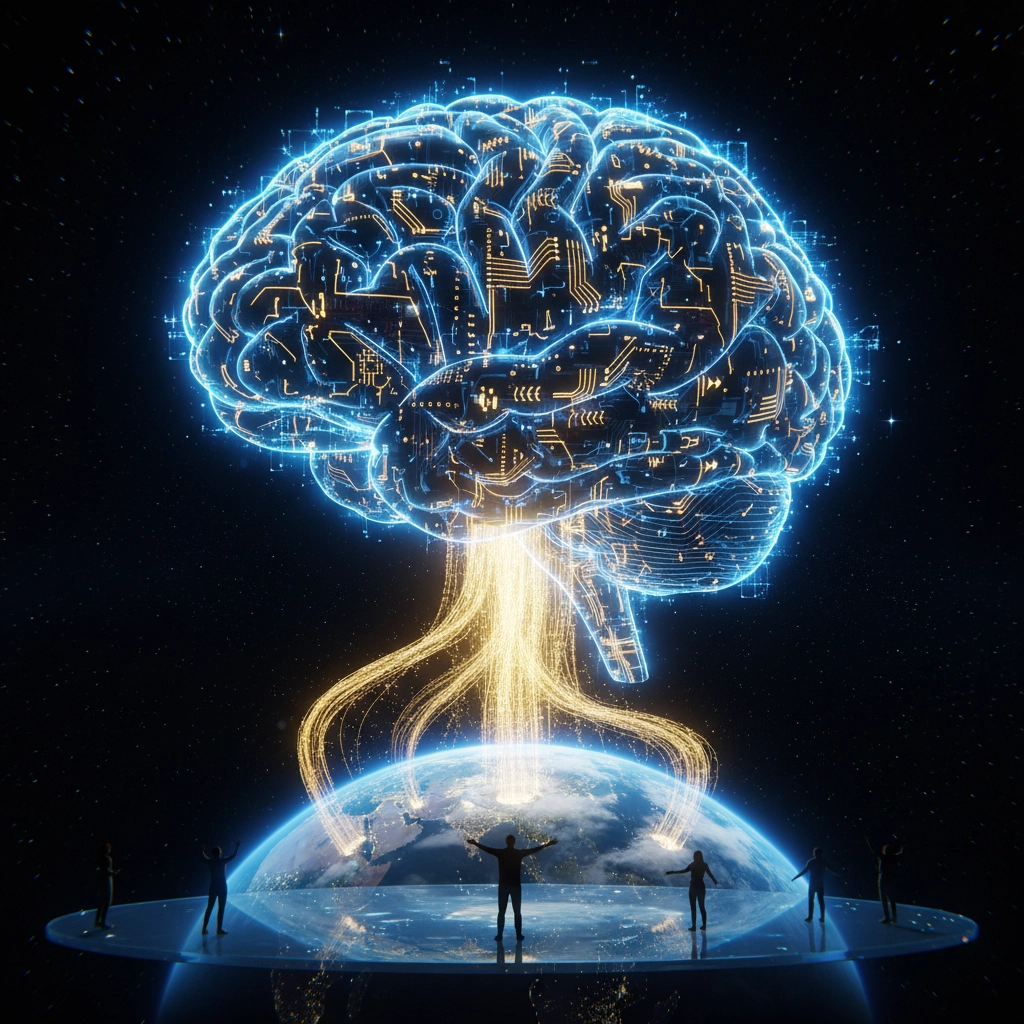
But there's another layer here. Nvidia already controls about 80-85% of the AI chip market. This partnership doesn't just maintain that dominance – it turbocharges it. Other companies like AMD and Intel are scrambling to catch up, while chip manufacturers like TSMC are laughing all the way to the bank (they make 90% of the high-performance chips everyone needs).
What This Means for the Rest of Us
The ripple effects of this deal will touch pretty much everyone, whether you're a tech enthusiast or someone who still calls their smartphone "the Google."
For workers, AI is about to become your most powerful colleague. Instead of replacing jobs wholesale, we're heading toward a world where AI augments human capabilities. The catch? People who learn to work alongside AI will have a massive advantage over those who don't.
For businesses, the cost of accessing powerful AI is about to plummet while capabilities skyrocket. That small marketing agency down the street? They'll soon have access to AI tools that rival what only Fortune 500 companies could afford last year.
For investors and the economy, this deal signals something huge: we're moving from an oil-based economy to a compute-based one. The countries and companies that control AI infrastructure will have the same advantages that oil-rich nations enjoyed in the 20th century.

But here's the part that keeps tech policy experts awake at night – this level of concentration of power in AI infrastructure raises some serious questions. When two companies control this much of the AI pie, what happens to competition and innovation?
The Plot Twists Nobody's Talking About
While everyone's focused on the headline number, there are some fascinating subplots happening here.
Custom silicon companies like Broadcom are already securing their own massive deals (think $10 billion) to challenge Nvidia's GPU dominance. It's like watching the early days of the smartphone wars all over again, except the stakes are exponentially higher.
Meanwhile, countries around the world are realizing they can't afford to be left out of the AI infrastructure game. We're seeing national AI strategies popping up everywhere, with governments treating AI compute like a strategic resource – similar to how they think about military defense or energy independence.
The timing of this announcement is no accident either. With AI development costs spiraling into the billions and compute requirements doubling every few months, only partnerships of this scale can keep pace with the arms race.
Your Front Row Seat to History
Here's something wild to consider: you're witnessing the equivalent of the internet's early days, except compressed into a much faster timeline. The partnership between OpenAI and Nvidia isn't just a business deal – it's the foundation being laid for an AI-powered economy that your kids will grow up taking for granted.
This $100 billion investment represents more than just money changing hands. It's a bet on a future where AI becomes as essential as electricity or running water. The companies making these investments now are positioning themselves to be the utilities of the AI age.
So the next time someone asks why you should care about some tech deal between two companies you might never directly interact with, remind them of this: the infrastructure being built today will determine what's possible tomorrow.
What do you think – are we heading toward an AI utopia where everyone has access to incredibly powerful tools, or are we creating a world where a handful of companies control the digital equivalent of all the world's oil wells?

